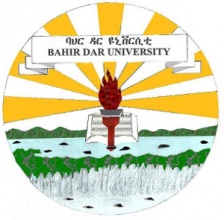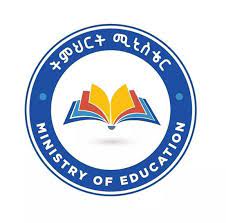INTRODUCTION
In Ethiopia, Higher Education has changed profoundly in the past few decades. The development of mass higher education has brought concerns for standards and quality from stakeholders and clients of Higher Education that escalating the size of undergraduate students’ enrolment and an even greater expansion of graduate training runs the risk of lowering quality unless major quality assurance efforts and professional advisory functions are in place within the jurisdiction of Higher Education Institution. The, expansion and enrolment rates in ODL at Tis Abay College are also rapidly increasing. For example, during the past few years, the number of ODL centers has increased from 31 to 104, student enrolment has tripled and new center tutors have been recruited in each center without any andragogical skill. The College also going to open regular, extension and weekend programs soon, for the increasing demand of education among the public at large. Furthermore, Tis Abay College is need well developed advisory council to ensure a well functioning College with a well established educational policy that help the College to meet institutional, national or international standards. Today’s rapidly changing society requires that educational entities and the communities they serve work closely together, especially in professional development Programs. The mission of the College to provide students with skills necessary for a successful transition to graduate and post graduate education or work and a desire for life-long learning in a global society. Excellence in career and professional education is the goal of Tis Abay College teachers, administrators, and volunteer board members. Bringing experienced people & Educators together on Advisory Board provides a format for sharing information and ideas. Program advisory Councils are organized to provide advice and assistance to the College teachers and administrators. To be sure students have to learn the most current skills; College’s staffs are an integral part of designing and updating curriculum. The purpose of this handbook is to provide the College with helpful information in (1) establishing an advisory Board and (2) maintaining a desired relationship with that advisory Council. To a significant degree, the success of the advisory board will depend on everyone’s input and effort. The recipients of the College’s efforts will assist students, faculty, staff, and administrators of the College.
A College ADVISORY Board is… A group of employers and employees from outside the College who advise the College on the establishment and maintenance of Tis Abay College’s Education programs.
WHY ARE ADVISORY BOARD NEEDED?Board is needed: To provide expertise to the program by reviewing curriculum, facilities, budget, student learning outcomes, and student internships in related occupations To provide an opportunity for discussion among people in education, business and industry To focus on how to improve career and technical education (CTE) and make the most of the community resources that are available To strive to improve the relationships between CTE, business, and industry
WHAT ARE SOME ADVISORY BOARD ACTIVITIES? The program advisory committee can assist with the following activities:
Curriculum Development: Reviewing curriculum materials for state-of-the-art-content Identifying competency levels and performance standards Identifying employability skills Reviewing textbooks and other instructional material Encouraging contextual education in the classroom
Program Evaluation: Reviewing goals/objectives of the College’s Education program Examining outcomes relating to quality and quantity of graduates and job placement Participating on program evaluation teams Assuring that programs are up-to-date and technologically current Staying current on new legislation
Job Placement and Recruiting: Providing students with cooperative education internships/training or job shadowing opportunities Sharing of full and part-time job opportunities with students Coordinating potential job openings with employers Conducting occupational surveys and employment forecasts Assisting in recruiting teachers Assisting in recruiting new students—secondary, postsecondary, and adult Assisting in recruiting new advisory committee members
In-service Training: Providing summer and part-time employment experiences for teachers to upgrade skills Providing in-service activities for the teacher on current methods and processes Obtaining counsel and assistance on special problems and new undertakings
Public Relations: Obtaining effective media coverage Displaying poster and other publicity Recognizing outstanding career and technical education educators Recognizing outstanding students Being visible in support of programs during public and special events Presenting to civic and community groups Recommending technical resource personnel Providing classroom speakers from business and industry Providing tours and field trip experiences Securing additional funding and donations for materials and equipment
HOW ARE ADVISORY BOARD MEMBERS CHOSEN?
The board members should be selected according to established guidelines. A general outline for selecting the committee membership is as follows:
1. Prepare a prospective list that includes: Representative of:
Business
Industry
Other Colleges
• Persons who:
Have recent related experience
Are available to attend
Are interested in education (including a student representative)
• Diversity in:
Gender
Ethnicity
2. Interview the prospective members, explaining purposes, nature, and term of membership. Determine if their participation would benefit the program.
3. Send letter of appointment from the Dean of the College or appointed designee stating the date, time, and place of the first meeting.
4. Business and industry representation should comprise a majority of committee membership, and school representatives may only serve in an ex officio (by virtue of or because of office) capacity
HOW ARE THE MEETINGS CONDUCTED?
All meetings should be well organized, with an atmosphere of open participation and consideration of time. Members should receive the agenda in time for adequate review before the meeting, a minimum of two weeks in advance. Minutes of the last meeting should be provided with the agenda for the upcoming meeting. Any other material that committee members need to study in advance of the meeting (for example, proposed curriculum changes) also should be provided with the agenda. In order to prepare for subsequent meetings, the committee chair presumes the responsibility to: Plan an agenda Prepare items for representation Arrange for meeting space Prepare special and progress reports Send copies of minutes and recommendations to the Dean, advisory board members, VPI, or others, as appropriate.
RESPONSIBILITIES OF THE ACADEMY DIRECTOR TO THE ADVISORY BOARD
The Academy Director is the Advisory Board’s main liaison to the college. She or he is responsible for ongoing Academy management. The following serves to illustrate the College’s Academy Director’s role in relation to the Advisory Board. A complete job description of the Academy Director may be provided to the Advisory Board upon request to higher education. The Academy Director: Serves as the liaison between the College system and the Advisory Board and between higher Education and the Advisory Board, Presents program status reports at each board meeting, Apprises Advisory Board committee members of Academy-related issues, Disseminates higher education and college reports to all board members, Apprises Board of publicity regarding local programs of the college, Facilitates board member on-site activities with students, as well as meetings with school district officials, Meets with Advisory Board Chair and Committee Chairs to jointly develop meeting agendas, Distributes notices and minutes of board meetings to Advisory Board members in conjunction with the Board Secretary, Articulates program needs to the Advisory Board, Encourages active participation of Advisory Board members in national higher education meetings Submits annual Academy data (including Advisory Board information) to ministry of higher education..
RESPONSIBILITIES of Advisory Board
1. provide advice to the College officials on strategic issues
2. Provide knowledge & skill contributions.
3. Strengthen public relations and publicity relative to the College.
4. Assist in evaluating the rigor, relevance and effectiveness of the curriculum to meet the needs of the industry, readiness for College and preparation for life.
5. Provide access to professional development activities for College teachers and the Academy Directors.
6. Assist the College on program development and student recruitment.
7. Provide industry and education familiarization tours for teachers and career exploration tours for students.
8. Provide mentoring and shadowing opportunities for students and professional training opportunities and internships for teachers.
9. Assist in budget development for the College.
10. Serve as an advocate for the College to educational, political, civic and business communities.
11. Encourage employer to support the College campus-wide and facilitates the relationship between the Academy and its employer.
MEETINGS Quorum A simple majority of the Advisory Board members (2/3) shall constitute a quorum for conducting Advisory Board business.
Voting Each active member of the Advisory Board shall be entitled to vote on any issue presented to the Advisory Board. A duly qualified alternate in attendance at a meeting may vote on behalf of a member, but no proxy votes are allowed.
Minutes The Chairperson will designate a person to record and distribute the minutes to all Advisory Board members. This is typically the Secretary. The Academy Director will assist the Chairperson in coordinating the meetings and developing the agenda. The Academy Director will also ensure that absent Advisory Board members will receive material and minutes distributed at the Board meetings. Minutes will be distributed at least one week prior to the next Board meeting.
OFFICERS AND DUTIES Chairperson
1. The Advisory Board shall consist of one Chairperson. The Chairperson shall be elected by the members of the Advisory Board for a term of two years.
2. The Chairperson’s duties shall be those usually pertaining to the office set forth in Robert’s Rules of Order and such other duties as may be prescribed.
Conclusion This working manual shall be provided for each of the advisory board members so that they are clear of their roles and responsibilities.


